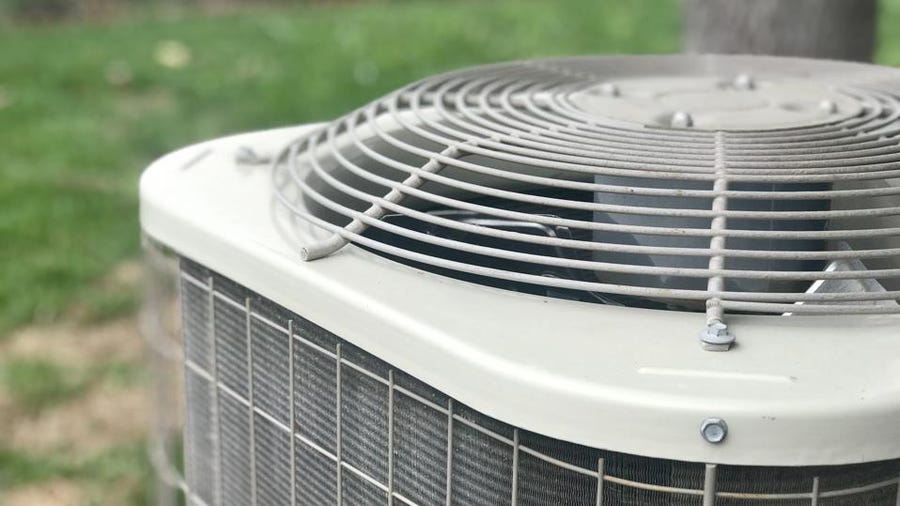
Plumbers are likely to have heard of PTFE tape. But what is PTFE tape? It is a non-stick, heat-resistant film tape made from polytetrafluoroethylene. The PTFE tape comes in a variety of widths and spools, which make it easy for you to wrap around pipes threads. This article will discuss the advantages of PTFE and how it seals pipe threads.
Gas leakage is prevented with PTFE tape
PTFE tape has many uses, including in plumbing and fuel systems. While most PTFE tape is designed for water-based systems, PTFE tape is also ideal for gas and fuel oil applications. PTFE tape, unlike other types, is extremely flexible. It can also withstand high temperatures and pressure as well oily conditions.

It is not stickible
Nonstick PTFE tape has great chemical and solvent resistance. It is widely used in sealing, anti-adhesive, and friction-reducing applications. It can withstand high temperatures as well as humidity. Non-stick PTFE tampons are easy and do not leave any residue. They are ideal for many applications. It can also reduce noise levels and extend the life of components and machines.
It is durable
PTFE is known for its remarkable chemical resistance. It can be used in many applications such as pipe thread seals or wind turbine blades. It has excellent chemical and thermal resistance. Ptfe tape has a long life span and is resistant to high temperatures and most chemicals. You have many great options if you need to use it even in harsh environments. Learn more about these materials.
It is resistant to heat
Ptfe tape uses a non-toxic material known as PTFE to prevent crosslinking with other materials. Its chemical inertness means it can be used in environments that contain chemicals or solvents. It is resistant to heat and non-corrosive, making it an ideal choice for wire harnesses or capacitors. It is also non-sticky, meaning it won't leave a sticky residue after removal.

It is versatile
PTFE Tape is a versatile lubricant/sealant. It can be used in both gas and water systems. It is chemically inert, so it is safe for fuel lines and gas. PTFE tape can be used to seal fuellines, such as those found in automobiles. It is used for sealing various fuel lines and covering threaded connections in gasoline tanks.
FAQ
What is a "Standard Contract Form"?
A template is used to create contracts. These templates include all of the basic elements of a contract including the date/time, place and parties.
Individual clients can modify standard contract forms. For example, companies might offer their standard forms of contract.
These forms may not be right for everyone. These forms can help you save a lot of time.
One of these contract forms might be a good option.
What are the payment terms for the service/contractor I am required to pay?
The type of service is dependent on how much you pay. In other words, if you hire someone to install a roof, you will typically pay once the work has been completed. However, when you purchase a product from a seller, such as a kitchen range oven, you may only pay once you have received and tested it.
Do I require a legal representative in order to sign my Service Agreements
No. You do not need to appoint a legal representative in order to sign your service agreements. However, you may want to appoint one as a precautionary measure.
Legal representatives are people who act on behalf of another person. If you are a contractor, you may want to appoint someone who will represent you professionally.
This could involve hiring a solicitor, accountant, or other professional. You could also appoint someone to take care of your business interests.
In most cases, the client appoints a lawyer. Sometimes, however the vendor hires a legal agent.
Legal representation in any case means that you are legally protected.
Do you have any other suggestions?
Yes. Make sure to check your local laws about what type of projects you can do and what conditions you have to comply with. Some states require you to get approval from the council to build. Some states only require you to notify them about your plans. For more information, consult your local authorities.
What is the purpose and scope of the service agreement
The purpose of a Service Agreement is to define the terms under which a customer agrees to purchase goods from you. It also specifies how you will deliver those services to them in return for payment.
The most widely used type of this document is a Sales Order Form. Here you will list the items being purchased and their prices. You can also list any other items such as delivery charges, VAT or insurance. You also specify the delivery and payment dates.
Depending on the nature and purpose of the transaction, it is possible to use another document.
If you are offering a service instead of selling products, an invoice might be appropriate.
You will probably need a Purchase Order Form to purchase items from another party.
Include all information when creating a sales order form.
Keep in mind that the more detailed your sales order forms are, the easier it will for buyers to understand.
Is there any limit on how much money I can spend for the project?
No. No. The contractor may be willing to negotiate a lower price.
Statistics
- (d) Contractor disputes related to compliance with its obligation shall be handled according to the rules, regulations, and relevant orders of the Secretary of Labor (see 41 CFR60-1.1). (acquisition.gov)
- (3) The contracting officer may provide for a contract price adjustment based solely on a percentage rate determined by the contracting officer using a published economic indicator incorporated into the solicitation and resulting contract. (acquisition.gov)
- (1) Except as provided in paragraphs (a)(4) and (a)(8) of this section, if the estimated amount of the contract or subcontract is $10 million or more, the contracting officer shall request clearance from the appropriate OFCCP regional office before- (acquisition.gov)
- Depending on the client's trustworthiness and financial stability, a deposit is usually 10 to 50% of the total contract amount. (lawdepot.com)
- (1) Ascertain the extent to that offers are based on the payment of overtime and shift premiums; and (2) Negotiate contract prices or estimated costs without these premiums or obtain the requirement from other sources. (acquisition.gov)
External Links
How To
What should a service arrangement include?
A Service Agreement (SA) is essential to any business relationship. It defines what you want from each other, and how you will get it. The SA also specifies when and where you expect each party to fulfill its contractual obligations.
These are the key components of a successful SA:
-
Both parties agree on the scope of work and the services they require.
-
Details of payment terms including start date and end date for delivery of goods/services.
-
A price agreed upon for the project.
-
Any additional costs like VAT etc.
-
Whether there is anything else that needs to be discussed.
-
Who will take responsibility if there is an error in the job?
-
How to resolve disputes
-
What happens if a party breaches the contract.
-
What happens in case of dispute.
-
When will the contract become effective?
-
What happens when one of the parties doesn't perform?
-
How long will it take to pay invoices
-
Who pays for things such as travel expenses?
-
Where the money comes from.
-
What happens if the client decides to change his mind about the project.
-
What happens if your supplier doesn't show up?
-
Who has access during construction to the site?
-
What happens if a customer cancels the contract?
-
What happens if the product fails?
-
What happens if the supplier refuses to sell parts?
-
What happens if the equipment breaks down.
-
What happens if a project takes longer than expected?
-
What happens if the work isn’t completed within the stipulated time?
-
What happens if the quality of the finished project falls below expectations?
-
What happens if costs exceed expectations?
-
What happens if the materials aren't delivered on time.
-
What happens if the material arrives damaged.
-
What happens when the products don't meet standards?
-
What happens if the job gets cancelled before it is completed?
-
What happens if the company goes bust.